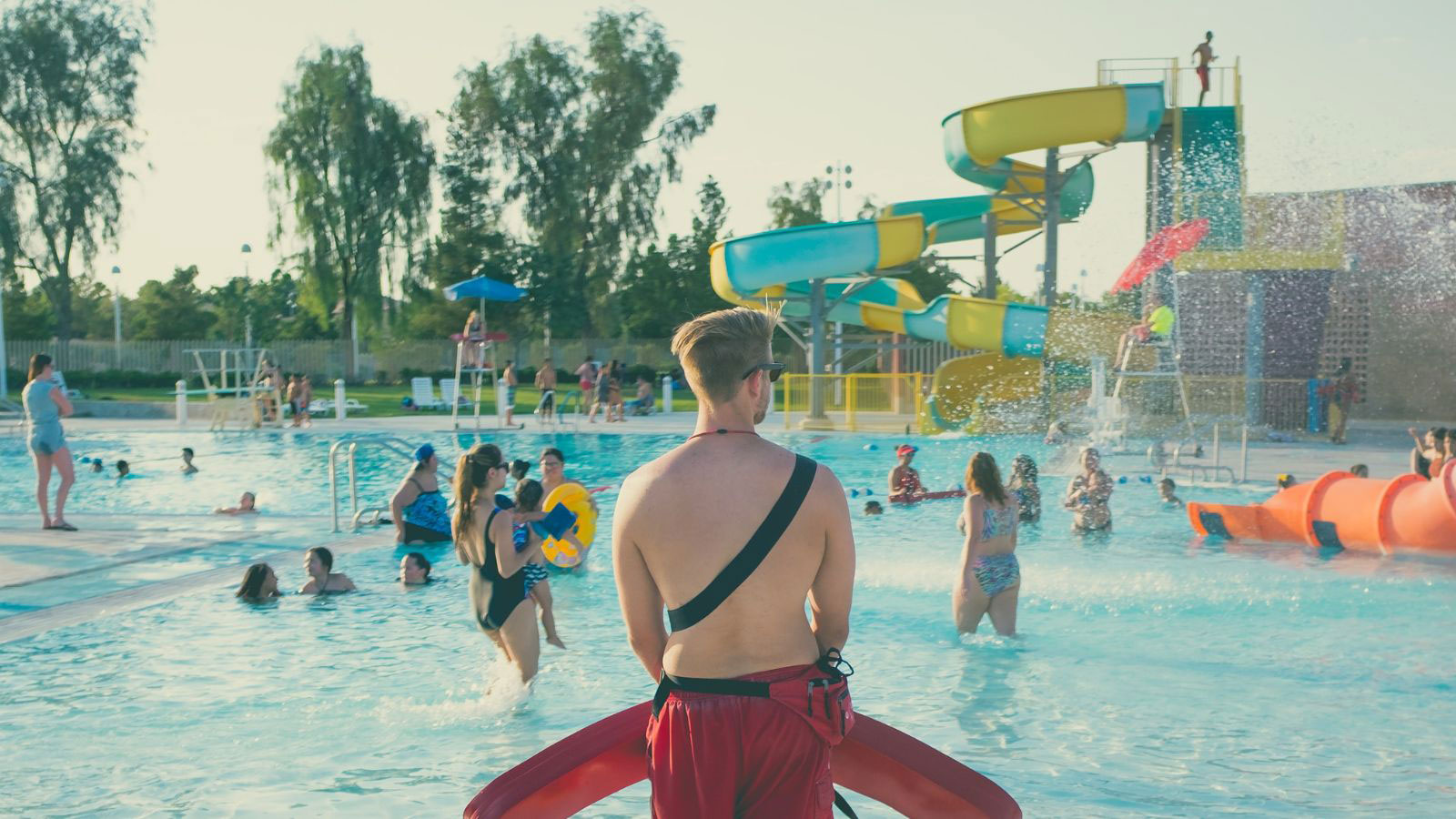Two years ago, Hayden White of Carmel, Indiana, was working as a lifeguard at a neighborhood pool when another lifeguard collapsed. He immediately rushed over to help.
“She was really hot. She was really dry. She was super pink in color,” he says. “And then I said, ‘Oh no, she’s in heat stroke. We need to get EMS here as soon as possible. We need to get ice packs on her.’”
White provided first aid until an ambulance came and took her to the hospital, where she recovered.
As global warming brings more hot days, it’s especially important for lifeguards and other outdoor workers to know the risks of extreme heat.
White says he recognized the signs of heat stroke and knew how to respond that day at the pool because he had been studying to become a certified athletic trainer.
But he says lifeguards need thorough training in how to respond to heat-related illnesses so they can take action if they see someone in distress.
And he reminds lifeguards to protect themselves by staying hydrated and asking for an umbrella if they’re not provided with shade.
“I think lifeguards have to be better advocates for themselves when rising temperatures come,” he says. “Because lifeguards are there to protect other people’s lives, but if they can’t do their job properly by protecting themselves, then no one is safe.”
Reporting credit: ChavoBart Digital Media


